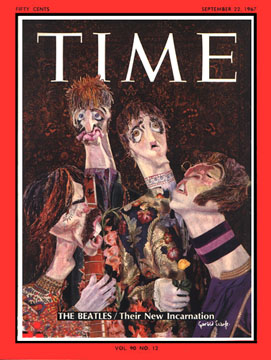
On a recent morning, I woke up and was able to remember a dream I’d had during the night. The dream was about Matt Mena, my childhood friend. Dreams are strange and sometimes, after we wake, we remember only snippets or individual scenes from them. When it comes to this dream I recently had, I remember only one scene.
I was sitting along the edge of a round, aboveground pool (the type often seen in people’s backyards) and my feet were in the water. I was wearing a bathing suit and was taking in the sun. Matt Mena was sitting next to me. We weren’t talking. It seemed as though he was just keeping me company. I had a sense of impending dread. Dread. This was the dream’s pervading feeling.
Anyway, as I sat there, I looked in the water. Now, this pool, it was very, very deep. Usually aboveground pools in people’s backyards are eight feet deep, max. The pool in the dream seemed bottomless; it was more like a void.
At any rate, there I was, just sitting on the edge, peering into the water with a sense of dread. The feeling turned out to be founded. From the deep, I saw someone beginning to swim toward the surface. I kept my eye on him. He was getting closer and closer. Though he was swimming to the surface, I first espied him when he was quite deep. Don’t ask me how he was able to hold his breath for so long, but he managed. Anyway, I knew why he was swimming to the surface. He was coming for me, to pull me under. I was certain — insofar as people can be certain in dreams — that these were his intentions. I was also certain that this person wanted to pull me under as a prank. I’m not sure, however, if he wanted to drown me. It felt more as if he wanted to pull me under to be funny.
Now, this person swimming to the surface, he knew Matt. In fact, he and Matt were friends. I’m not sure if I were friends with this person but I was certain he and Matt were. Anyway, I was watching him swim upward and before I knew it, this person was moments from breaching the surface, from reaching me and trying to pull me under.
But I was ready.
I had a firm grip on a pipe that was fixed to the pool, near its edge. I knew that this person in the water was about to try and pull me under, but I wasn’t going to let that happen; I was prepared. Anyway, the person finally breached the surface and started tugging on me. But he couldn’t budge me. And he knew it. He had to quickly rethink his plan.
He turned to Matt, who was sitting next to me, and said, “Help me....Tickle him" — referring to me, of course — "Hit his hand!” This person was trying to enlist Matt into helping him drag me into the pool. When I noticed this, I was a little concerned. I knew he and Matt were friends. But Matt and I were friends, too. Anyway, as I sat there, holding on to this pipe — the only thing preventing me from succumbing — I turned to Matt. I wasn’t sure if Matt was entertaining the idea of helping this person but I wasted no time nevertheless. I said to Matt, “Don’t you fucking dare.” Matt then looked at me and his expression said everything. It said that he was by no means about to help this person pull me into the water. His expression told me that he wasn’t even entertaining the idea. Matt was on my side. And I wasn’t, in the end, pulled under.
That was the dream.
Anyway, that morning, the morning on which I woke from this dream, I had an urge. I’m not exactly sure why I had this urge, but it probably had to do with the fact that I’d just dreamt of Matt; it probably had to do with the fact that Matt’s noble actions in my dream reminded me of the strong bond he and I once had. Anyway, the urge was this: to write about Jessica, Matt’s sister. Jessica died of a drug overdose in the winter of 2009. But you would never have thought it. In fact, I never knew Jessica had a drug problem or even took drugs. Anyway, I had this strong urge to write about Jessica after waking up from this dream the other day. So here goes.
*
I can’t remember when I first met Jessica. To me she always seemed pretty young. I was three years older than she. I must have met her in late 1994 when I was 12 because that was the year I became friends with Matt. I must have met Jessica at Matt’s house, at his mother’s second-floor apartment in the Great Neck Terrace.
Jessica had a caramel complexion, sort of like Matt. Unlike Matt, though, who has frizzy hair, Jessica’s hair was straight. It was black, too, and I remember her wearing it long. Her eyes, if I can remember right, were the color of her skin. Like caramel. But I’m not really sure. At any rate, her eyes were light. Jessica always seemed very calm, too. Her voice was smooth and soothing. She spoke at a slightly-slower-than-normal pace. I was never sure why she spoke this way, but it sounded fine and it was completely natural to her; there was no affectation going on.
I remember her room at her mother’s apartment in the Terrace. It had a fire escape and it was always very messy. A mirror hung above a long cabinet across from her bed. I think her walls were painted magenta. Anyway, Jessica was often on the phone when I came over to Matt’s house. (I started coming over often in 1995.) Yeah, I remember her frequently being on the phone or out when we — as in Matt’s friends — came over. She was never too interested in Matt’s friends. She’d always speak to us, but she was never interested in involving herself in our circle. She certainly never dated any of us; at least I think she didn’t. Jessica always had her own friends. She was always very popular. However, it must be said that she could be reticent and she didn’t always seem that extroverted. Therefore, I did wonder at times how she had so many friends. Not that she wasn’t a likable person, she was, but she seemed more the type who wouldn’t be that interested in making a ton of friends. Still, she had them.
Jessica would always ask you a few questions if you were to come to Matt’s house while she happened to be hanging around. She seemed to be interested in you, but, as I mentioned, not that interested. Still, it must be said that, when Jessica asked you a question, it never seemed as though she were simply trying to make conversation. It never seemed like she was talking to you out of a compulsion to be polite. She was asking those questions because she was interested.
To be honest, I don’t have that many memories of Jessica before she entered her first year of high school. I was a senior when she was a freshman at Great Neck South High. I remember that she was in my first period keyboarding class, which I took my senior year. Jessica sat next to me, at the computer to my left. I think I might have even cheated off her during a test once or twice. I remember Jessica as a decent student. I remember always thinking how strange it was that Jessica had entered my high school. She always seemed so young. I always felt as though I was much older than she was, and it was always a bit odd seeing her in the hallways.
However, when I did see her walking in those hallways, ignoring her was impossible. If I’d see her walking, and if I wasn’t too much in a rush, I’d always look her way....I’d always acknowledge her. I also remember that she, too, would always acknowledge me. Most of the time we wouldn’t even say anything to each other. It was usually just a look. We’d make eye contact and sort of grin. But it was nothing flirty. It was more a look that said, “Well, well, well...what trouble are you causing?” Or perhaps the look — and we’d always maintain strong eye contact when we passed each other; we’d maintain eye contact for as long as we could — said, “Oh, you again. God, it’s kind of strange seeing you in my school, but it’s cool.”
Whatever the case, we’d always acknowledge each other. Jessica knew how close Matt and I had been even though Matt and I had grown apart a bit during my high school years and she knew that I’d had a pretty big influence on him. I sort of got Matt into graffiti. In fact, I think I was the person who originally helped Matt get in touch with his “bad” side. At any rate, Jessica knew I was no angel. The expression she had on sometimes when we passed each other let me know this.
Ah, Jessica...what else? I remember that I went to a house party, which Jessica also attended, during my senior year of high school. As mentioned, I always felt as though I was a lot older than she was, and true to form, I remember saying to Jessica at this party that I couldn’t believe that I was partying with her; after all, she was so young, right? She and I were in the backyard of this house and we were sitting on lawn chairs facing each other and it was night. I remember saying that I couldn’t believe that I was drinking a beer with Matt’s little sister at a high school house party. I can’t remember what her reply was but she must have in some way played down my comment. She must’ve replied with something cool. She probably told me it really wasn’t that big of a deal, then changed the subject.
I also remember that Jessica was supposed to study psychology in college. I remember thinking that I thought that that would be a good pursuit for her. You were never able to really get inside Jessica’s head. It was always hard to read her. People would also say, perhaps somewhat jokingly, but still, that Jessica was good at persuading people, that she had strong powers of persuasion. I guess I could see that. It always seemed as though she was always able to read you; that she could see inside you, if you will. Whether this was true or not, I don’t know. However, it felt that way.
I saw Jessica for the last time on an LIRR train heading toward Manhattan. She was sitting with some guy, some guy whose likeness I can’t at all remember. I was traveling on the train alone that day. Jessica and this guy happened to be sitting a few seats away from where I’d taken a seat. Jessica noticed me, I think, and came over. She sat next to me and we started talking. She seemed very interested in what I had to say, more interested perhaps than she ever had been. She seemed very interested in what I was doing with my life. She was asking more questions than usual — though not too many — and she seemed very interested in the answers. This must have been 2008, the latest.
Anyway, we talked for a while and then she and her friend got off the train somewhere in Queens, though I’m not sure where. I really can’t even tell you what we talked about exactly. Our conversation must’ve centered on what she was doing with her life and my journalism. Anyway, I remember that she looked good, healthy. She looked the same way she looked when I first met her — thin, with a soft smile and long black hair. Her voice was still smooth and calming and she still talked at a slightly-slower-than-normal pace. I remember she had a nice smile on when she said goodbye to me that day. I also remember that she maintained eye contact with me for a little longer than someone else might have. She maintained eye contact with me for just a few moments longer, similar to the way she would when we’d pass each other in the hall in high school. And, just like all those times in high school and even before, she seemed to posses an ability to see what was inside.






.jpg)











